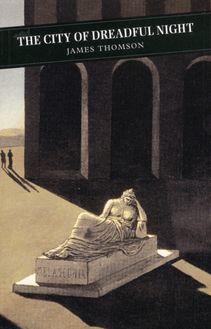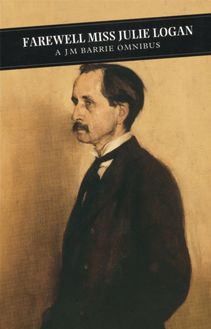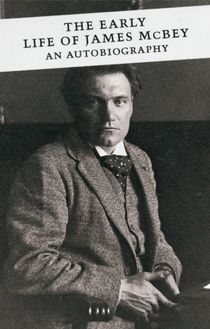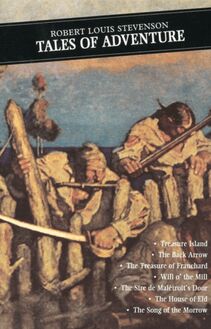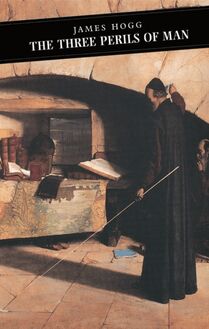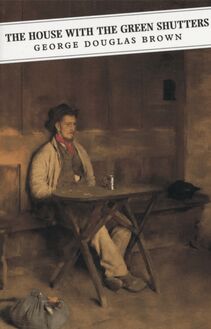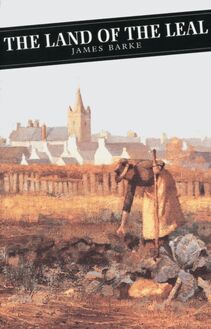Autobiography , livre ebook
183
pages
English
Ebooks
2010
Vous pourrez modifier la taille du texte de cet ouvrage
Obtenez un accès à la bibliothèque pour le consulter en ligne En savoir plus
Découvre YouScribe en t'inscrivant gratuitement
Découvre YouScribe en t'inscrivant gratuitement
183
pages
English
Ebooks
2010
Vous pourrez modifier la taille du texte de cet ouvrage
Obtenez un accès à la bibliothèque pour le consulter en ligne En savoir plus
Publié par
Date de parution
01 juillet 2010
Nombre de lectures
0
EAN13
9781847675132
Langue
English
Publié par
Date de parution
01 juillet 2010
Nombre de lectures
0
EAN13
9781847675132
Langue
English
EDWIN MUIR
an autobiography
Introduced by Professor Peter Butter
To STANLEY CURSITER AND ERIC LINKLATER Fellow-Orkneymen
Contents
Edwin Muir: Α Personal Memoir
Introduction
Preface
1 Wyre
2 Garth
3 Glasgow
4 Fairport
5 London
6 Prague
7 Interval
8 Dresden and Hellerau
9 Italy and Austria
10 England and France
11 Scotland
12 Prague Again
13 Rome
Appendix I
Appendix II
Index
Edwin Muir: A Personal Memoir
I had to go and have tea with Edwin and Willa Muir at Stromness Hotel, Orkney, one summer afternoon in 1951.
I was so nervous I drank a couple of pints of beer in the bar below. It was a rather awesome prospect, to be meeting for the first time the author of The Story and the Fable and The Labyrinth .
All I remember of the meal was that Willa told stories and laughed a great deal. Edwin sat among swirls of cigarette smoke, silent and smiling.
They had given a lift in their car to two travelling booth boxers, from Kirkwall to Stromness. The pugilists thanked Edwin for the lift. ‘And thanks to your mother,’ said one (meaning Willa). Willa laughed delightedly about that.
At the end of the tea and cakes, Edwin said he’d liked a story of mine in The New Shetlander . On the strength of that, he’d take me as a student when the new session began in October 1951.
* * *
A nervous train journey it was from Aberdeen to Edinburgh, for someone new to railways. A simple islander might overshoot the mark, or get off too soon. But there at Waverley Edwin was waiting to drive me to Newbattle, safely. (Edwin and cars didn’t get on; the cars may have resented his two marvellous poems about horses.)
Again, I can’t remember what we spoke about.
* * *
Newbattle 1951–52 was the happiest time of my life. The snow lay thick that winter and the heating failed in the great Abbey for a week or so, and we had to cut down trees on the far bank of the Esk so we could huddle round the fire in the Abbey crypt (the students’ common room). No wonder I got a bad cold at the end of the Spring term.
* * *
The students came from Scotland, England, India, Yugoslavia, Africa. There were not as many students as there ought to have been; education authorities were reluctant to give grants for non-vocational courses. Sero Sed Serio was the motto carved on the Abbey stones (‘Late but in Earnest’). We could study English Literature, Philosophy, Economics, History: whatever we chose.
We happy few got on very well, on the whole.
* * *
Because Edwin was a famous writer, most students attended his lectures. The Elizabethan Dramatists was his subject that year. Edwin would come drifting in to the lecture room, sit down, and begin to speak about Marlowe, Chapman, Shakespeare, in a kind of mild Orcadian lilt. There seemed to be no attempt at eloquence at all; so some students were a bit disappointed. The lecturer appeared to be in a kind of gentle trance. One could sense depths under the tranquil surface. Sometimes he would open a text and take off his glasses and read a passage. The substance of some of those lectures appeared in his excellent book Essays on Literature and Society … Then the voice trailed off, and the lecture was over.
Another lecture he gave every Friday on Language. This was mostly about where to put commas and semicolons in sentences. Edwin advocated a simple plain prose style … I found those language lectures a bit boring, and maybe didn’t attend them all. I thought I knew all that elementary stuff anyway.
Once a month we were expected to hand in an essay. Then one by one we were summoned to discuss the essay in Edwin’s study that overlooked the formal Italian garden and a great beech tree (it was blown down in a January gale that year) and the murky South Esk river. There was no set subject for an essay; an essay could be a poem, a story, a fragment of an autobiography anything.
A mild ritual took place, once you had knocked and been invited in. Edwin sat at his desk among hanks of cigarette smoke; there lay your essay on the desk … Some time passed before discussion of the essay. There were frequent pauses while Edwin looked through the window. He never said anything to hurt anyone’s feelings (though many of the essays must have been dreadful) … ‘How are you getting on?’ he would say. Then, ‘I hope you’re quite happy here …’ The masterpiece of an essay lay on the desk, but at last, after all the kind enquiries and the silences, the manuscript had to be talked about. He sifted through the pages. ‘Oh, it’s interesting,’ he might say at last. (One of the students, Tom Wilson from Larbert, said you could always tell by the way Edwin said It’s interesting’, whether it was pure trash or had some really good things in it …) Another smoke swirl another tranquil silence and gentle valediction then you gathered up your manuscript and came away.
* * *
So, he was not a spectacular performer. But there was a wonderful atmosphere at Newbattle all that year. I’m sure it had much to do with that Prospero weaving spells there in the heart of the ancient Abbey. In the crypt we sat till midnight talking about everything under the sun, mainly politics and literature. There was a quickening of poetry in some of us. Even one student of politics took to writing verse. We read and recited to each other; never before or since have I enjoyed poetry so much. It is well enough since printing began, to read poetry alone out of a book. But when two or three poetry-lovers come together, everything is enriched beyond measure. (The audience at the Globe Theatre, the townsfolk of Kelso or Perth when a wandering balladman began to chant in the marketplace both poet and audience illiterate experienced the full glory of verse). Edwin seemed to do nothing about it, but I think his mere presence at Newbattle opened those horizons.
* * *
Looking back on that time from a distance of forty years, I often think how tired he must have been how he must have longed for a few hours to do the work he was here on earth to do. Often that year he was unwell. But the corporate aspect had to be seen to. Edwin appeared at the mid-morning tea breaks, smoking and sipping tea that had only a few grains of sugar in the cup; and again for the life of me I can’t remember any words of his on those many mornings. Sometimes he might say to a student, ‘I don’t think I’ve seen an essay from you for a good long while now, Bob …’ That same Bob Fletcher won a scholarship to King’s College, Cambridge, with an essay on Milton that he wrote at Newbattle. Bob had been a tube worker in Airdrie. There were frequent get-togethers of a few students in the Muirs’ sitting room of an evening: wine and cakes. Willa dominated on those occasions, smoking cigarettes in a long holder, with vivid pastiches and caricatures and clerihews, and peals of laughter … Again, Edwin sat in a corner sipping wine and weaving cigarette smoke, and saying little.
On a fine afternoon Edwin and Willa would walk round the garden, very slowly because Willa had arthritis and went on a stick, and Edwin seemed to glide rather than walk through the grass.
In the end the poet, weary of administration and bureaucracy, was glad to be summoned from Newbattle to give the Charles Eliot Norton lectures ( The Estate of Poetry ) at Harvard.
He left behind him a little group of young men and women whose lives have been perpetually enriched by his presence among them.
George Mackay Brown
Introduction
In 1938, aged fifty, Edwin Muir began to take ‘notes for something like a description of myself, done in general outline, not in detail, not as a story, but as an attempt to find out what a human being is in this extraordinary age which depersonalises everything … It may be that I have found at last a form which suits me’. 1 These last words refer back to his three novels, and acknowledge that fiction had not been the right form for him. Actually, those early novels had become increasingly autobiographical and (except in the first and best, The Marionette ), the autobiographical elements had burst out of the fictional structure imposed on them, revealing its weakness. Now the memories are to be allowed to speak for themselves. ‘I would like to avoid all make-believe; the arranged patterns of modern novels give me such a stale, second-hand, false and tired feeling’. But Muir still wants form, not an indiscriminate gush. ‘I have no wish to confess either, for the sake of confession: I am too old for that: I want some knowledge’. 2 Form will be given by making the description of himself ‘an attempt to find out what a human being is’. So the first version of the autobiography, published in 1940, was called The Story and the Fable the story of one man enacting the fable of Man. ‘The Eternal Man is what has possessed me during most of the time that I have been writing my autobiography, and has possessed me in most of my poetry’. 3 Perhaps too much so in the poetry written up to then. The Story and the Fable better combines vivid detail with the search for meaning. To do this convincingly is the main task of this kind of autobiographer. If he puts in only those items of his story which most clearly reveal the underlying fable he may seem to be making an ‘arranged pattern’; if he pours in everything he can remember much of it will be trivial and meaningless. For this reason, even after starting The Story and the Fable , Muir still hankered after the autobiographical novel, in which a writer can bring out the correspondences between an individual life and a larger pattern freely. ‘As it is, I have to stick to the facts’, and try to fit the larger images in where they will fit in. The facts about a man’s appearance, social position, routine life, etc, he rather curiously calls ‘a dry legend’. When such things are known in a merely external way they give no knowledge of what a man is. The ‘legend’, even if made up of true facts, is ‘deceptive’, whereas the
